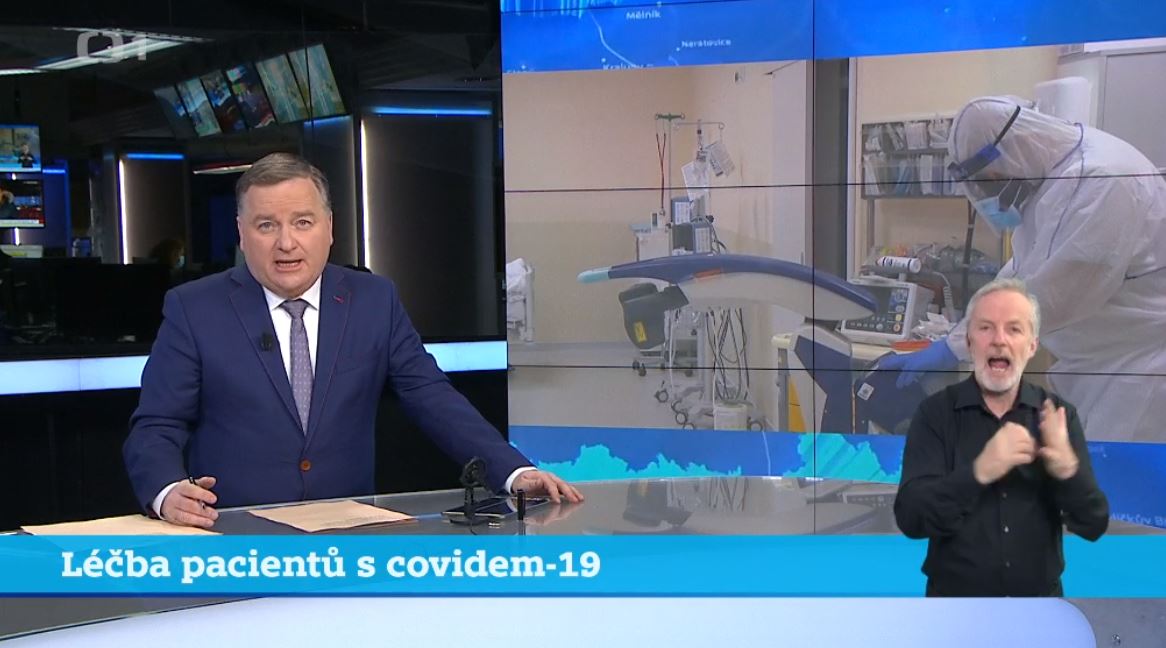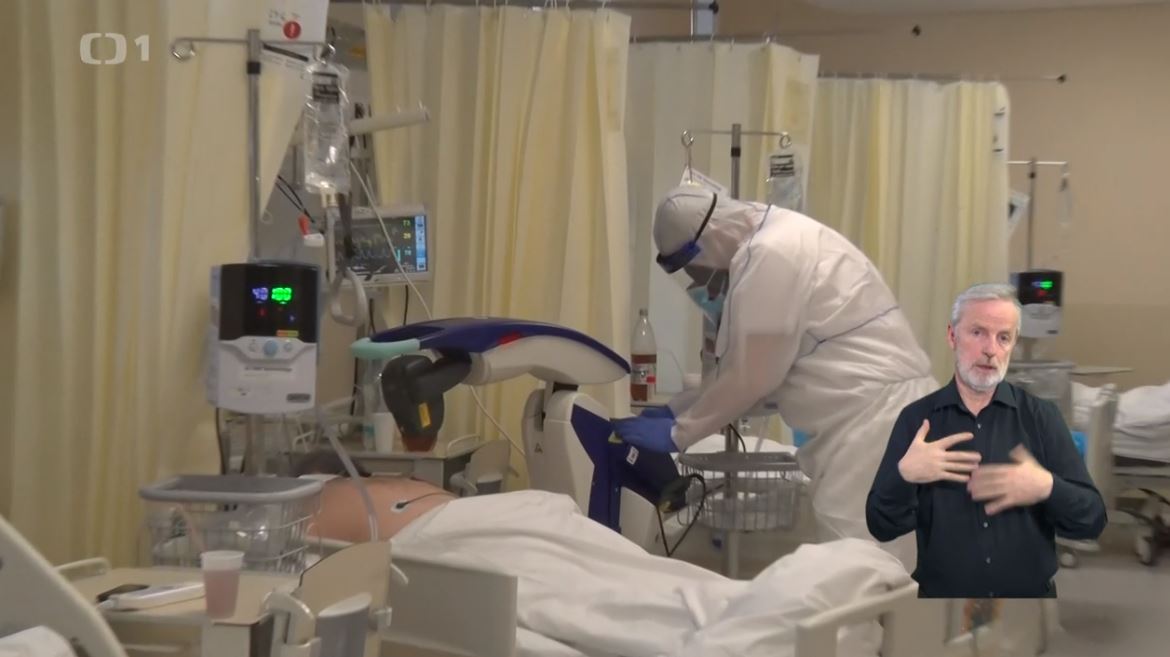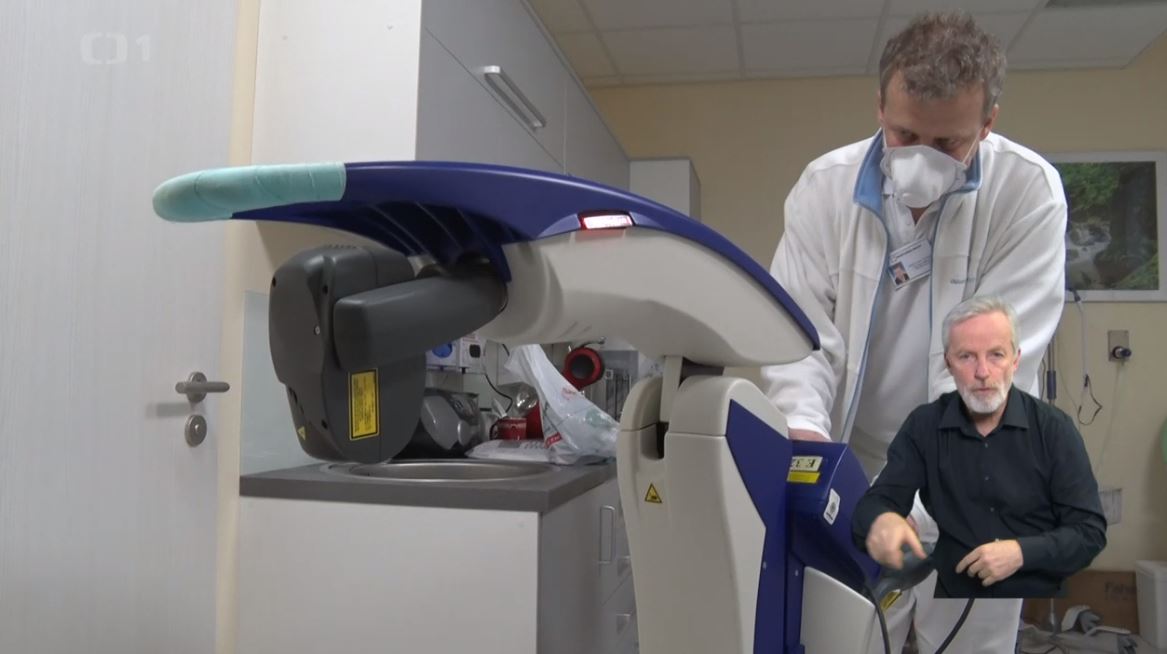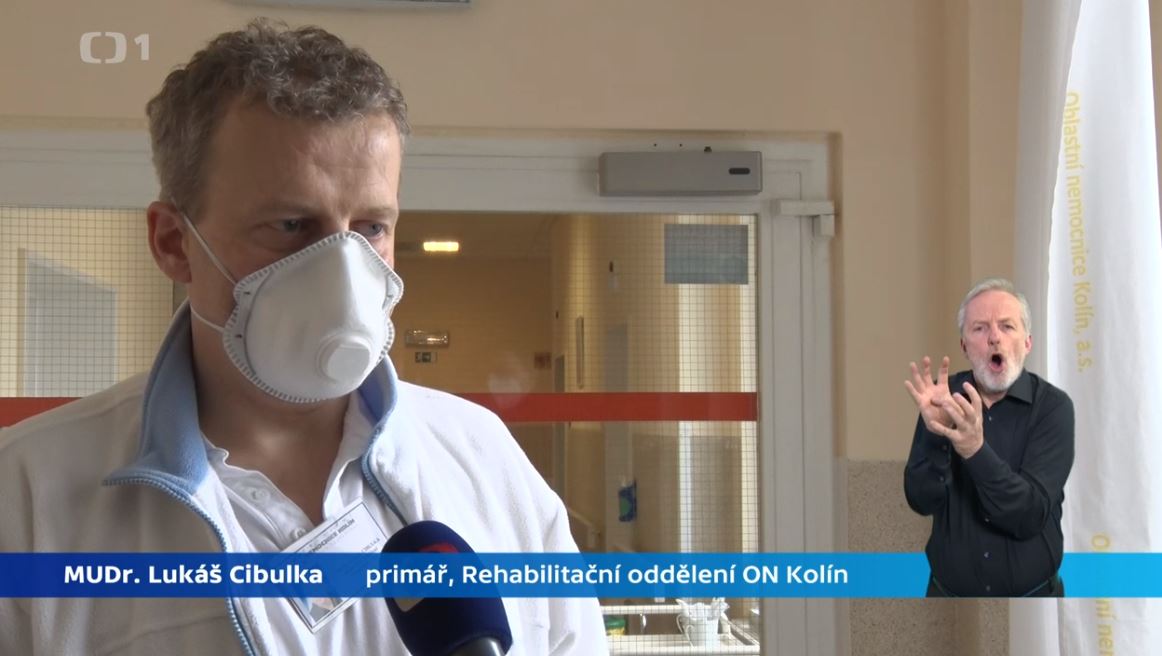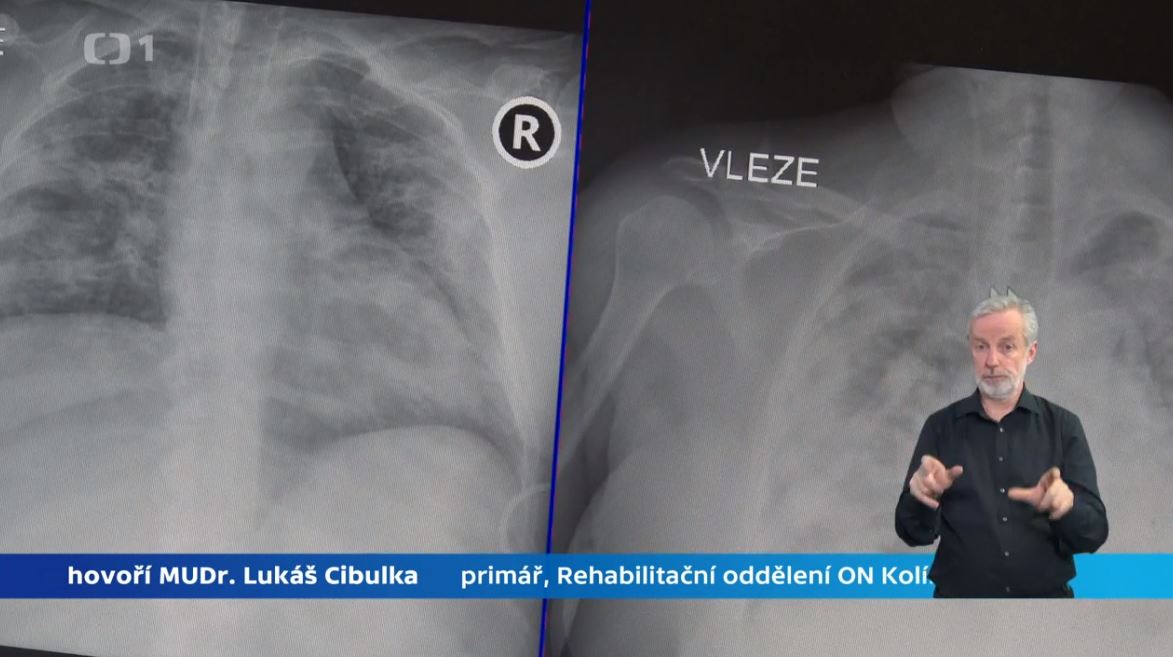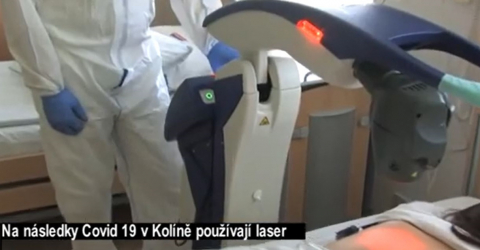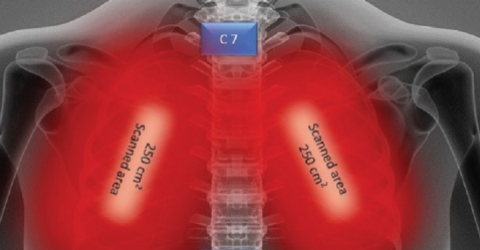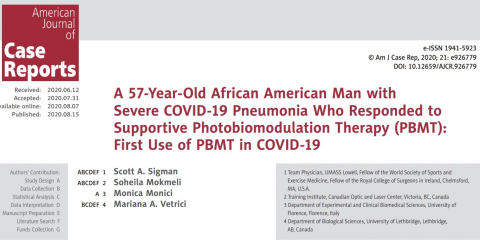Ceska Televize: MLS® enters the fray for treating COVID-19 pneumonia
After viewing the successful results obtained by Doctor Scott Sigman (an orthopaedic surgeon in Massachusetts) when using MLS® Laser Therapy for a clinical trial to treat interstitial pneumonia caused by COVID-19, this was also adopted by the doctors in the Covid Unit of the Kolin Hospital, in Bohemia.
This was announced by Ceska Televize, the TV channel in the Czech Republic, which interviewed the chief physician of the facility:
“Following our direct experience, we confirm the value of MLS® in the treatment of interstitial pneumonia caused by the virus. Its action consists in reducing the progress of the tissue inflammation, with consequences also on pulmonary fibrotization”.
